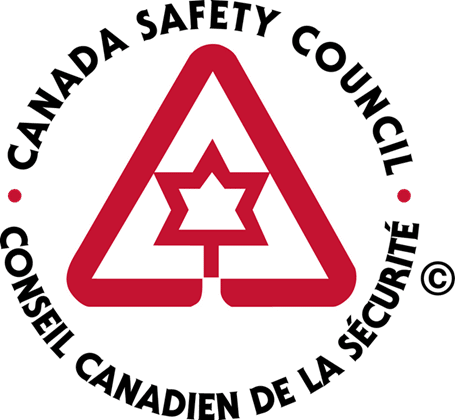Safety on the road ahead
May 14, 2013 | Campaigns, National Road Safety Week, Vehicle & Road Safety
This National Road Safety Week, May 14 to 20, the Canada Safety Council is focusing on the importance of ensuring that young drivers are properly educated and prepared to get out on the road.
According to Transport Canada, young driver and passenger fatalities continue to be very noticeable in motor vehicle collision statistics. Nearly 23 per cent of motor vehicle fatalities were 15 to 24 year olds in 2010, even though this age group makes up only 13 per cent of the Canadian population. Put another way, over 500 young people are killed each year in road crashes in Canada and a further 40,000 are injured, many seriously.
Areas to focus on improving safety among young drivers include seatbelt use, impaired driving and distracted driving.
Seatbelt use
Seatbelt use has been documented to reduce the risk of serious injury and death. Transport Canada reports that while 93 per cent of Canadians buckle up, the seven per cent who don’t account for almost 40 per cent of fatalities in vehicle collisions. Seatbelts save about 1,000 lives a year in Canada. More lives could be saved if everyone buckled up for every trip.
Seatbelt use requires the active participation of the driver or passenger, and it is a habit that needs to be formed early and reinforced often. This is especially important for teens since they tend to be involved in collisions more often than more experienced drivers. In addition, it is important to know that in the event of a crash, unbuckled drivers and passengers can become projectiles and injure other vehicle occupants. The message is simple: when in a passenger vehicle, buckle up!
Should a teen driver forget or neglect to buckle up, we ask other passengers to remind the driver to fasten his or her seatbelt.
Impaired driving
Impairment can have many causes – these include alcohol, drugs and fatigue.
Young drivers between 16 and 24 lead the way in fatalities that involved alcohol and/or drugs. According to statistics from the Canadian Centre on Substance Abuse, 27.6 per cent of fatalities among this age group were impaired by alcohol. Compare this with 26.9 per cent of fatalities who were impaired by drugs.
Teens need to recognize their limitations and understand the consequences of driving while impaired. These consequences range from the loss of driving privileges and hefty financial costs, to life-changing serious injuries and death. Impaired drivers don’t just endanger their own lives – they endanger the lives of their passengers and other road users as well. Impaired driving is preventable and needs to stop.
The solutions are simple: don’t become impaired in the first place. Make alternate transportation arrangements if you are not in good condition to drive. Call a sober friend or parent. Take public transportation or call a cab. Stay overnight.
Distracted driving
In an April 2013 release, the Traffic Injury Research Foundation reports that drivers under 25 are far more likely than older drivers to send text messages or emails while driving. Among 16 to 25 year old respondents to a recent national survey, about 70 per cent admitted to sending text messages or emails while driving compared to 14 per cent of all respondents.
Texting while driving increase the chances of being in a collision by 23 times. Hands-free texting has not been documented to reduce this risk. The Canada Safety Council therefore recommends against the use of a cell phone while driving. Put the phone away out of reach so you won’t be tempted to check your messages while on the road. If you need to make a call or send a message, find a safe place to pull over and stop before reaching for your phone.
Distraction comes in many other forms, including talking to passengers, programming a GPS, changing the radio station or your music settings or even eating or applying make-up behind the wheel! Be responsible – focus entirely on the driving task at hand.
For the road ahead
Teens are encouraged to take driver training and to access the many available resources on safe teen driving. Talk about, think about it and stay safe! For more information, please visit the Canada Safety Council’s website.
-30-
For more information, please contact:
Raynald Marchand
General Manager, Canada Safety Council
(613) 739-1535 (ext. 226)
